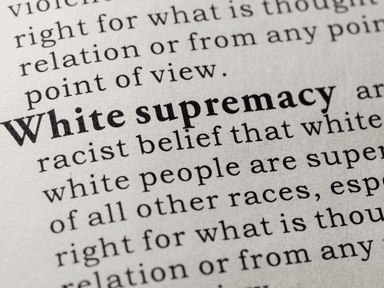White supremacist ideology has influenced scientific research from the 1700’s to the present. The evidence abounds in the subjects and topics ‘researched,’ the language and images used, and the assumption that the norm is of European descent. Everyone else is racialized and characterized as biologically or genetically or socially less than.
Research from the white supremacy perspective informs theory and doctrine in all the helping disciplines. The policies of public health and social work departments, health systems, institutions of learning, and the training of professionals are thereby based on ideology that maintains white advantage and devalues people of color. The behaviors and practices of social workers, therapists, teachers, nurses, and physicians are influenced by the way they are trained to see and think about non-whites. From early childhood, mainstream culture ingrains racial bias in future helping professionals so that, between their upbringing and their training, these professionals have the potential to visit harm instead of help on the children they teach, the poor they are supposed to support, and the sick they are supposed to heal. They become instruments of ongoing oppression, despite their good intentions. They say Black children are behavior problems, Black people don’t have strong families, and Black patients are non-compliant, poor historians with low health literacy. There is little or no understanding of how US history – and present – perpetuates the disadvantage Black people have struggled with for centuries. And no attention has been paid to how we have excelled and overcome the obstacles of a society rigged against us.
It’s time to flip the script and study the practices of the Black midwives – before modern obstetrics put them out of business. It’s time to cite African American academicians with culturally afro-centric, Black feminist, and human rights perspectives, and learn from education innovators of color. It’s time to listen to Black women on committees and in the exam room, and not interrupt or dismiss them – disparaging their contributions, perspectives, and symptoms. Changing the deeply embedded white supremacist mindset and behaviors in the helping professions will take study, guidance, and lifelong practice. Hence the need for consultation, training, and long-term follow-up from an organization or firm with years of experience in Dismantling Racism.

